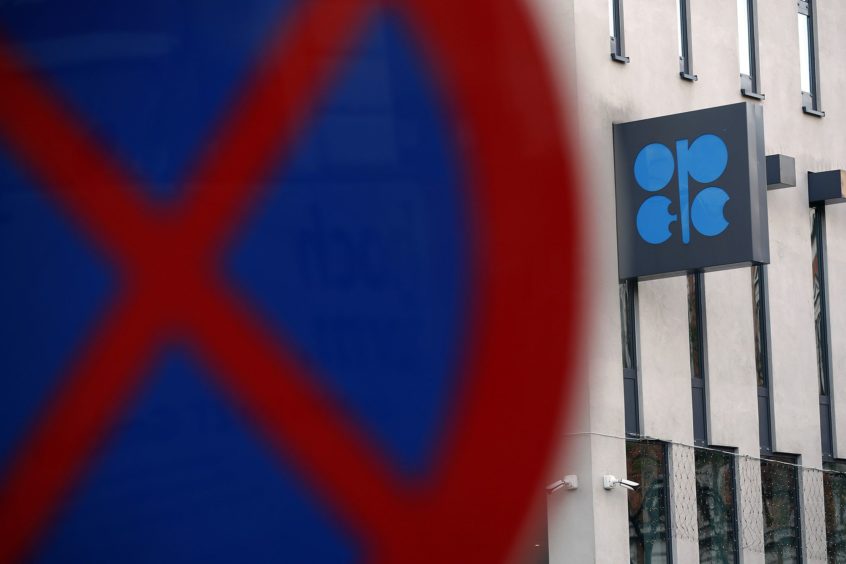
Oil erased gains as the OPEC+ meeting was put in doubt over cheating by some nations on their output-cuts deal.
The producer group won’t hold an early meeting on June 4, and a scheduled gathering next week was also threatened, unless all nations first agree to cut output by as much as they promised, according to people familiar with the negotiations.
The alliance had been expected to prolong their record cutbacks, but in the absence of a meeting the curbs could ease next month and bring back millions of barrels of supply.
“The market has priced in an extension which may now not materialize,” said Ole Hansen, head of commodities strategy at Saxo Bank.
Saudi Arabia and Russia are leading the call for better adherence to the agreement. Moscow, usually a laggard in previous deals, has almost reached its target while others such as Iraq and Nigeria are falling behind. OPEC+’s unprecendented curbs, and demand returning from the depths of the coronavirus slump, have helped double Brent crude from its mid-April low.
| Prices: |
|---|
|
Both Nigeria and Iraq issued statements on Tuesday pledging better compliance with the cuts. Nigeria said it will reach its quota by the end of this month, while Iraq’s acting oil minister said his nation is addressing technical issues that will allow it to further reduce output.
The OPEC+ curbs have helped the oil market move toward balance, after the massive demand destruction at the height of the virus pandemic in April. Stockpiles at the storage hub at Cushing, Oklahoma, fell by 2.2 million barrels last week, according to the American Petroleum Institute. If confirmed by official data later on Wednesday, that would be the fourth straight weekly decline.
Still, the path back from the virus looks uncertain. Inventories at a key European hub jumped the most in two years last week. And there are signs of American shale production returning, complicating OPEC’s task.